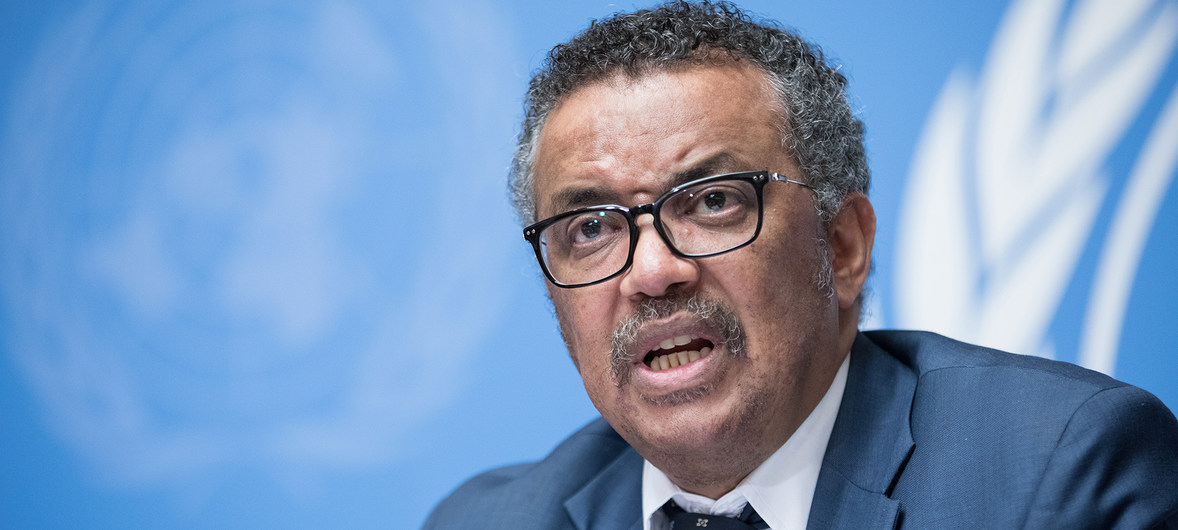KUALA LUMPUR, June 23 — Several countries have recorded a second wave of the coronavirus, such as South Korea, Israel, Australia, Portugal, Spain and New Zealand.
The Guardian reported the Korea Centers for Disease Control and Prevention (KCDC) as confirming that places in and around Seoul faced a fresh Covid-19 outbreak on a holiday weekend in early May.
“In the metropolitan area, we believe that the first wave was from March to April as well as February to March,” KCDC director Jeong Eun-kyeong was quoted saying.
“Then we see that the second wave, which was triggered by the May holiday, has been going on,” he added.
South Korea reported 17 new Covid-19 cases last Sunday. The newly reported cases dropped to below 20 from 48 and 67 cases reported in the previous two days. To date, South Korea has reported a total of 12,484 cases, with 281 deaths.
At the end of February, South Korea reported an alarming 900 cases per day, and was considered the first large outbreak of the coronavirus outside of China.
Although the reported cases in South Korea reduced to single digits in late April, the number saw a rise after the announcement of possibilities of easing physical-distancing guidelines in early May.
The spike was moved by the increase in infections among young people who visited entertainment areas, such as nightclubs and bars in Seoul during the holiday weekend.
“We originally predicted that the second wave would emerge in fall or winter,” Jeong was quoted saying.
“Our forecast turned out to be wrong. As long as people have close contact with others, we believe that infections will continue,” he added.
Following the rise in Covid-19 cases, Seoul announced the possibility of reintroducing stronger physical-distancing measures if the rise in infections did not drop to below an average of 30 over the next three days.
Israel reportedly confirmed the presence of a second wave of the virus, as the government indicated possibilities to reintroduce a lockdown. Israel is experiencing a steep growth in their reported cases.
Israel recorded more than 20,000 confirmed Covid-19 cases, with more than 300 new infections lately.
The country’s prime minister, Benjamin Netanyahu, mentioned that the government is evaluating the measures taken during this period of time.
“If we don’t immediately change our behaviour regarding wearing masks and keeping distance, we will bring upon ourselves, against our will, a return to lockdowns,” Netanyahu was quoted saying.
“None of us wants this,” he added.
At the same time, a team of contact tracing experts is working to address a new outbreak in Melbourne, Australia. They would channel assistance to local health workers there to handle the new outbreak.
“Victoria has had a significant surge and there have been more than 116 cases identified in the last seven days and 75% of those have been the result of community transmission,” said the health minister, Stephen Wade.
Besides that, Portugal, Spain and New Zealand too have tightened protective measures to curb the spread of coronavirus.
Portugal and Spain imposed restrictions on social gatherings of more than 10 people and lockdown measures.
“We tackled the outbreak very early and managed to identify cases because we were looking for them,” the region’s director general of public health, Francisco Javier Falo, was quoted saying.
Spain’s health minister, Salvador Illa, also reportedly stated that the virus-infected areas were under control, amid the detection of 36 outbreaks in the country recently.
New Zealand, on the other hand, announced a tightening of its borders as the country saw an increase in the number of flights bringing more people in.
“While the world enters this dangerous new phase, we remain in a phase of border containment,” said the prime minister, Jacinda Ardern.
It is to be noted that the country recorded two new cases, a week after declaring the country free from coronavirus as it opened its borders for international flights.
These scenarios clearly show the problem in eliminating the coronavirus completely. In fact, countries which handled the pandemic successfully in the beginning are also facing difficulties to stop the spread of Covid-19 now, said the Guardian.
World Health Organization director-general Tedros Adhanom Ghebreyesus warned people about the speedy growth of Covid-19 cases globally.
“We cannot defeat this pandemic with a divided world,” he was quoted saying.
“The politicisation of the pandemic has exacerbated it. None of us is safe until all of us are safe,” he said.
He also stated that the first one million Covid-19 cases were recorded in three months, whereas it only took eight days to record the last one million cases.
So far, a total of 9.06 million Covid-19 cases have been reported with 471,000 fatalities globally.








